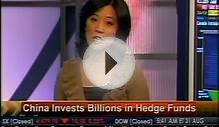
 David Grogan | CNBC
David Grogan | CNBC
Carl Icahn
Hedge fund investing is expensive, but following what the big-name managers do is not.
Such is the premise of "clone" funds, a small but growing sector of the market in which managers track what the best names in the hedge industry—think Leon Cooperman, Carl Icahn or David Tepper—are doing via the 13f disclosure forms they must file with the Securities and Exchange Commission.
Rather than fork over the infamous 2-and-20 fee structure that hedge funds use, investors can pay exponentially smaller sums to get in the clone exchange-traded funds.
Returns for the most part are unspectacular—but so are those for the hedge fund industry in general—and they have their share of detractors. Critics point out, for instance, that 13f filings are backward-looking and do not include short positions.
However, adherents believe clones are a great way for investors to get access to picks of some of the world's top investors without having to incur the costs or do the legwork.
"You're getting, essentially, access to high-conviction ideas of really smart guys, but you're not paying the usual freight to access them, " AlphaClone CEO Maz Jadallah said in a phone interview. "You're accessing them in an ETF, which is one of the more fantastic ideas when delivering value to investors."
Read MoreAckman: This is the best trade in capital markets
The $100 million AlphaClone Alternative Alpha ETF has a 0.95 percent expense ratio, which is substantially higher than plain-vanilla ETFs but well below active funds. As for performance, the fund gained 12.6 percent in 2014, shy of the S&P 500's 13.7 percent but well above the full-year hedge fund performance of a 3.3 percent gain (per HFR).
As for the criticisms about using regulatory filings to guide investment decisions, Jadallah said he's heard it all before.
"Holding periods tend to be a lot longer than most people think, " he said. "On average, holding periods for these guys is a year. For high-conviction ideas, it can be much longer than that."
The fund's largest current holdings are Valeant Pharmaceuticals, Enterprise Products Partners and United Continental Holdings.
Read MoreThis woman is rocking the hedge fund world
Another significant players in the space is the $371.8 million Global X Guru, which had a blowout 2013 as it generated a best-in-class 47.3 percent return, but followed that up with a lackluster 2014 when it made just 3.2 percent.
The $1 billion IQ Hedge Multi-Strategy Tracker fund is in the same family generally as the clone funds, though it tracks strategies more than individual investors so its returns are more hedge fund-like i.e. ho-hum.
Industry veterans are still trying to figure out what to make of the clone funds, which are young compared to the rest of the space and most have only a couple years of results to compare.
Donald Steinbrugge, managing partner at hedge fund consulting and marketing firm Agecroft Partners, said clone funds pose not only strategic issues but also ethical questions and objections from managers who believe the stocks in which they invest are "their intellectual property."
Read MoreLeon Cooperman bullish despite fund loss
"Many hedge fund managers are highly upset at this regulation because they spend a great deal of time and expense in researching securities to build a portfolio that they believe will generate above market risk adjusted returns, " Steinbrugge said in an analysis.
"These hedge fund managers view their portfolio as their firm's intellectual capital which has value similar to that of movie rights, music rights, or book rights, " he added. "Should the law drive the definition of ethical behavior? I can see both sides of the debate and think it is an interesting question."
YOU MIGHT ALSO LIKE












